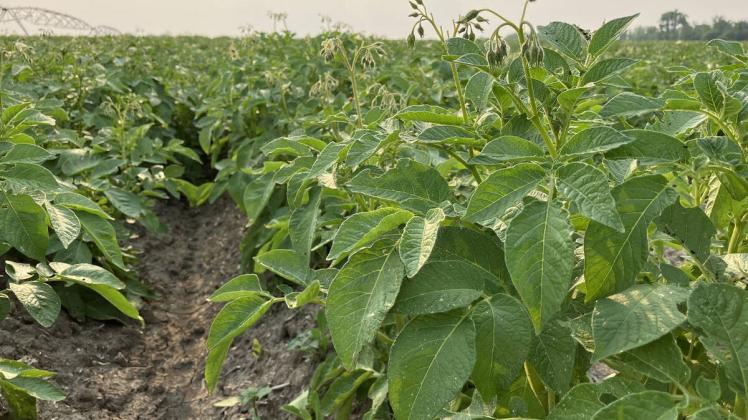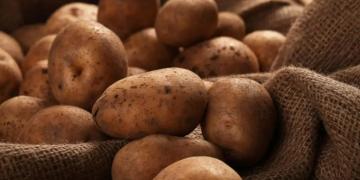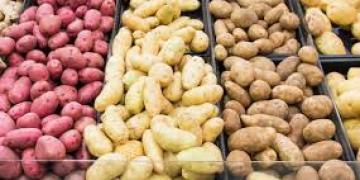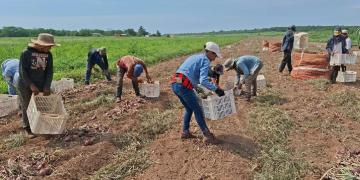Canadian potato production set to decline
Tariffs on frozen, fresh and seed potatoes will be disruptive, but new processing plants will help Canada’s potato sector

Canadian sales of french fries, hash browns and frozen potatoes to America have doubled over the last five years.
In 2019-20, Canada shipped $1.2 billion worth of frozen potato products to the U.S. In 2023-24, the value of exports was $2.4 billion, using potato market data from Agriculture Canada. In normal times, increasing exports of french fries or any product would be a good thing for Canada.
This is not a normal time.
President Donald Trump is hostile towards all imported goods, especially from Canada.
“We don’t need their lumber, we don’t need their energy, we don’t need anything (from Canada),” Trump has said on multiple occasions.
As of March 28, it’s impossible to predict if Trump and his minions will follow through on 25 per cent tariffs on a wide swath of imports from dozens of countries April 2. Frozen french fries could be included in the tariffs, or not.
Victoria Stamper, United Potato Growers of Canada general manager, has travelled across the country and spoke with dozens of potato producers since January. Two words have dominated those conversations – tariffs and uncertainty.
“Everybody has this April 2 date in their head,” Stamper said March 27. “Just that uncertainty, because we’re heading into planting time.”
What’s more certain is that Canadian potato production will decline this year. Potato processors have told farmers that they need fewer spuds in 2025.
“Even if the contract negotiations haven’t been completed, the volume decreases have been announced,” Stamper said.
The contract cuts are related to trade uncertainty, but there are other factors. French fry demand has slowed and processors are dealing with surplus potatoes from 2024.
Tariff consequences for potato growers?
A 25 per cent tariff on frozen, fresh and seed potatoes is extremely disruptive, but Canada’s potato sector does have a few advantages.
Over the last seven years, McCain Foods, Simplot and Cavendish Farms have invested hundreds of millions into expansions and new processing plants in Alberta and Manitoba. That has increased demand for potatoes, production of frozen potato products on the Prairies and exports to America.
It’s very difficult for the companies to walk away from those investments and shift production south, said an industry representative.
Plus, a 70 U.S. cent loonie is a difference maker.
It’s cheaper for processors to buy potatoes from Canadian growers and manufacture french fries on this side of the border because of our “Monopoly money,” the rep added.
That may be true, but Canada is extremely dependent on America for potato exports.
In 2023-24: Canada exported $493 million in fresh potatoes, with 92.6 per cent going south of the border.
Seed potato exports were $48 million, 96 per cent to the U.S.
Frozen potato exports were $2.4 billion, with 91 per cent to America.
Canada does import potato chips, dehydrated potatoes and fresh spuds from America, as total imports were around $455 million in 23-24.
Many media pundits have suggested that Canada needs to pivot away from America and shift exports to other nations. That’s easy to say, but integrated supply chains and buyers of Canadian potato products in America have been built over years.
Those business relationships aren’t easy to replicate with new customers in Japan, Vietnam or Indonesia.
“People forget that trade doesn’t happen between countries, it happens between people,” Stephen Poloz, former governor of the Bank of Canada, said in a March 26 National Post article. “And those people still like each other, still respect each other, still want to do business together.”
Alberta potato growers are better positioned than Manitoba to withstand tariffs, as Alberta is closer to West Coast ports. If tariffs devolve into a long-term trade war, a share of Alberta’s french fries and frozen potatoes could be diverted to Asian customers.
Manitoba, meanwhile, is much more dependent on the U.S.
“They are kind of landlocked… to get to a port is kind of expensive,” Stamper said. “It’s obviously better for them to ship south.”
Fuente: producer.com




